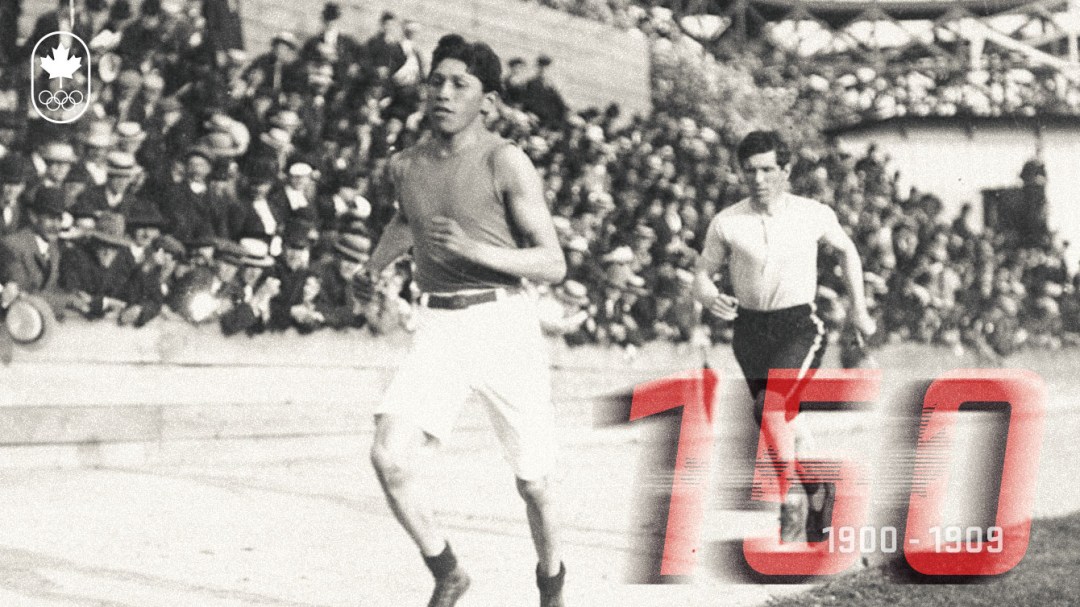150 years of Canadian sport: the 1900s
Another week brings us to another decade in Olympic.ca’s look back at key moments in Canadian sport over the last century and a half.
If you’re just discovering our countdown to Canada’s 150th anniversary on July 1, you can catch up on everything you missed here.
But now it’s time to make the turn into the 20th century, the first decade of which featured the first appearance of Canadian athletes at the Olympic Games, amongst some other incredible accomplishments.
1900 – Canada’s First Olympic Medallist
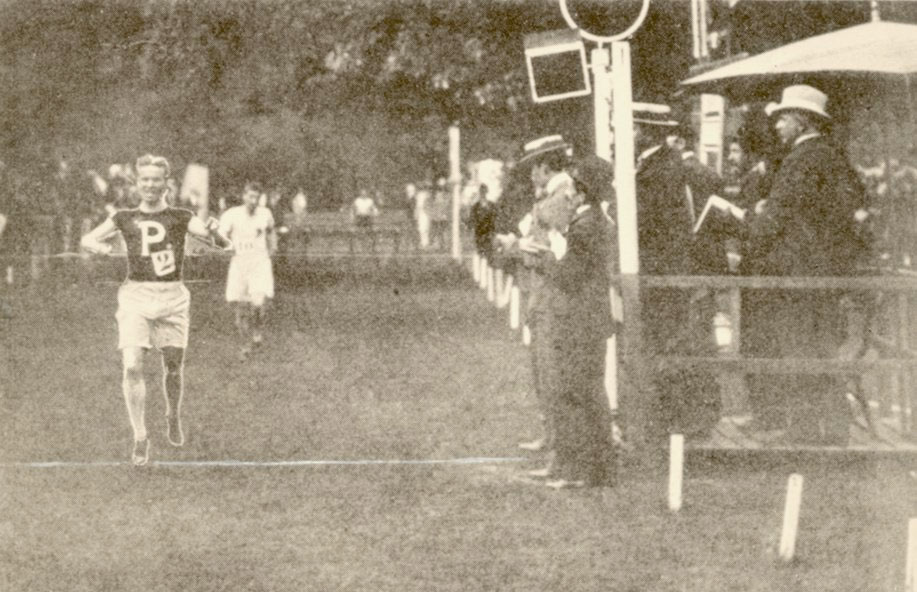
George Orton winning his gold medal at Paris 1900 while wearing his University of Pennsylvania shirt (Photo: upenn.edu)
George Orton will forever be remembered as Canada’s first Olympic medallist and first Olympic champion. In the span of less than an hour on July 15, 1900, Orton finished first in the 2500m steeplechase and placed third in the 400m hurdles at the second edition of the modern Olympic Games. Orton was one of four Canadian athletes who competed at Paris 1900, but because national teams did not exist at the time, many assumed Orton to be American because he represented the University of Pennsylvania in track and field.
1904 – Canada’s First Indigenous Olympians
In 1904, the Olympic Games were held in St. Louis, but as part of the Louisiana Purchase Exposition, making the sports events somewhat of an afterthought. But included in the six official Olympic medals awarded to Canadian athletes was a bronze medal in lacrosse, won by a team of Mohawk people from southern Ontario. Players on that team included Almighty Voice, Black Eagle, Black Hawk, Flat Iron, Half Moon, Lightfoot, Man Afraid Soap, Night Hawk, Rain in Face, Red Jacket, Snake Eater and Spotted Tail. Another Canadian competitor was runner Peter Deer, who competed in the 800m and 1500m. Deer hailed from the Kahnawake First Nations Reserve on the south shore of the St. Lawrence River in Quebec.
1904 – Olympic Gold Medals Awarded for the First Time
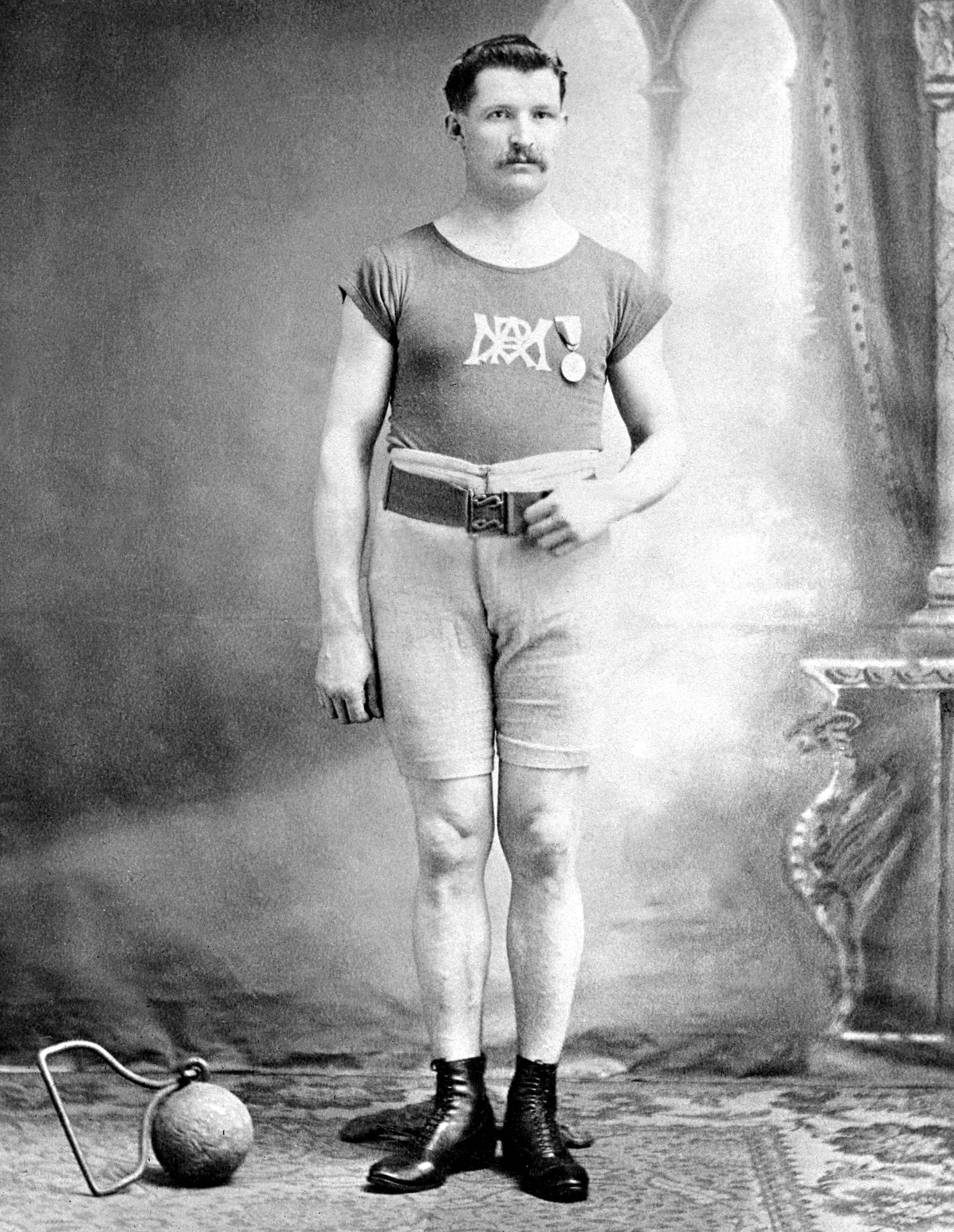
Canada’s Etienne Desmarteau poses with his gold medal won in the 56kg weight throw event at St. Louis 1904. (CP Photo/COC)
While it’s become natural to associate gold with an Olympic victory, that wasn’t always the case. At Athens 1896 first place finishers received a silver medal with bronze awarded for second. At Paris 1900, winning athletes received trophies. It wasn’t until St. Louis 1904 that the now traditional gold, silver, and bronze medals were awarded to the top three finishers. Canadians included in that first group of Olympic gold medal recipients were 56lb weight thrower Étienne Desmarteau and golfer George Lyon.
1906 – Canada’s First World Heavyweight Boxing Champion
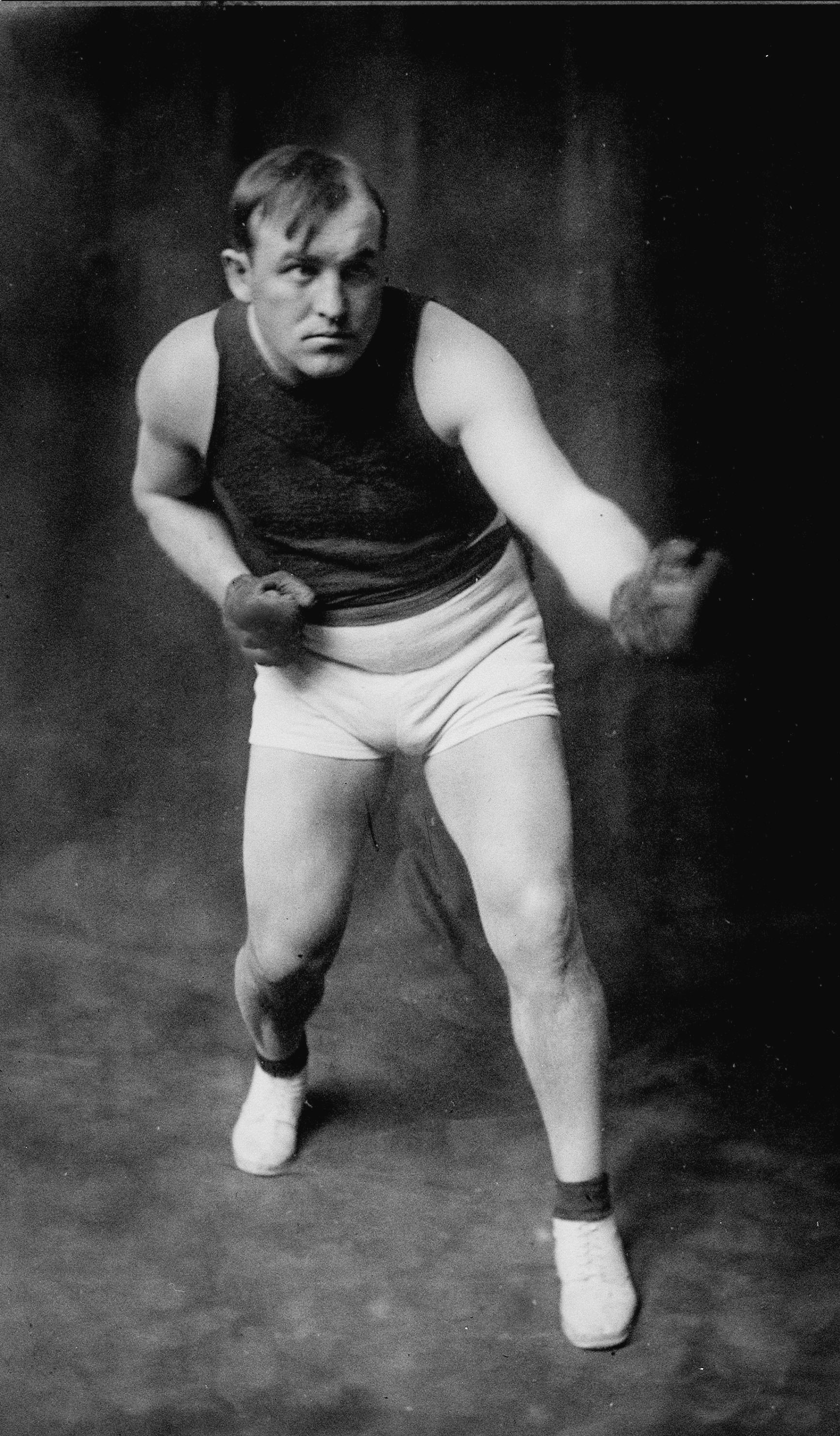
Tommy Burns, the first Canadian to win the world heavyweight championship on February 23, 1906 with a 20-round decision over champ Marvin Hart. Burns was just 5 foot 7 and 175 pounds and born near Hanover Ontario.(CP PHOTO / National Archives of Canada)
He wasn’t expected to last any longer than 10 rounds in the ring against American Marvin Hart in February 1906, but Tommy Burns not only defeated the reigning champion to become the first Canadian to win the world heavyweight boxing title, he managed to defend it 11 times in less than two years.
Unlike his competitors, Burns travelled to all corners of the globe to challenge anyone and everyone who posed a threat to his title, regardless of race. Believing the title only had weight if it was contested amongst all races, he became the first heavyweight champion to fight with a Jewish challenger and a Native American. In 1908 he was the first to agree to a heavyweight championship bout with an African American. Jack Johnson took the title from Burns, but credited the Canadian with being the only white heavyweight who ever provided a black man with the opportunity to win the title.
In his career, Burns set records for the quickest heavyweight knockout (1 minute 28 seconds) and most consecutive knockout wins by a heavyweight champion (8) as well as shortest heavyweight champion in history.
1907 – Tom Longboat Wins Boston Marathon
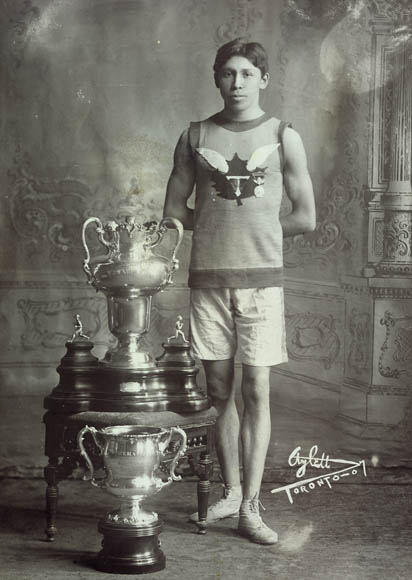
Tom Longboat on April 22, 1907, three days after winning the Boston Marathon (Photo: Charles A. Aylett / Library and Archives Canada)
An inductee to Canada’s Sports Hall of Fame, Tom Longboat remains one of Canada’s most talented long distance runners.
Having set Canadian records in races ranging from one mile to the marathon, a 19-year-old Longboat tackled the 11th Boston Marathon in April 1907. During that race, he faced not only sleet and rain, but a stacked line-up of competitors which included three previous Boston Marathon winners as well as Thomas Hicks and Johnny Hayes, the reigning and future Olympic champions. But it was Longboat who broke away during the most difficult section of the race, setting a new course record of 2:24:24, knocking an impressive five minutes off the mark. He would compete at the London 1908 Olympic Games, but collapsed from exhaustion as the race hit the 20-mile mark.
The First Nations athlete from the Six Nations Reserve went on to become world champion in 1909 before serving with the Canadian Armed Forces in World War I where he used his talents to act as a dispatch carrier, running messages from one military post to another.
1908 – Canada’s First Official Olympic Team
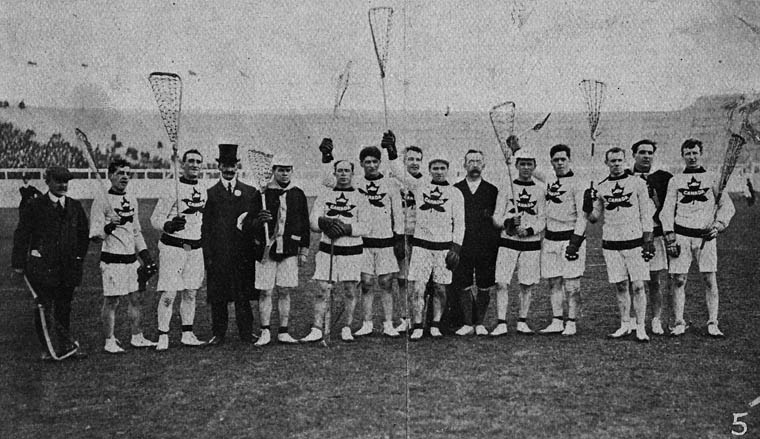
Canada’s 1908 Olympic lacrosse team (Photo: Joseph Gorman / Library and Archives Canada)
While London 1908 was the third Olympic Games at which Canadian athletes competed, it was the first time they entered as a national team, marching behind the Red Ensign as part of the first Parade of Nations in Olympic history.
Among the notable accomplishments by Canadian athletes were double podium performances by sprinter Robert Kerr and shooters Walter Ewing and George BeattieGeorge Beattie as well as a second straight gold medal by a Canadian lacrosse team.

